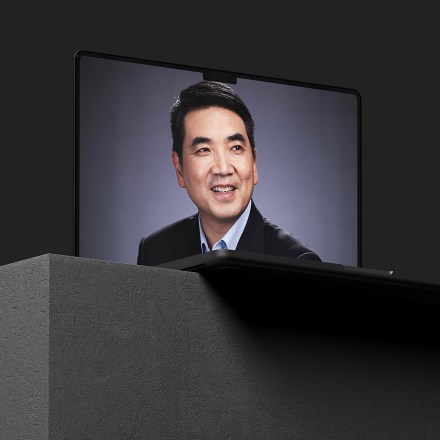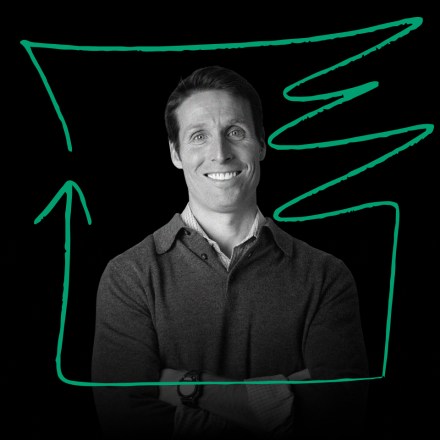“I’ve never considered myself a true blood entrepreneur,” Frank Slootman says over Zoom from Snowflake’s office in Bozeman, Montana, “because by any reasonable definition I don’t think I am. I’ve never founded a company.” And yet Slootman has repeatedly done what many founders just starting out dream of—lead a company to head-spinning success. He’s been brought in as a next stage growth doctor, one who takes an emerging company—Data Domain in 2003, ServiceNow in 2011, and Snowflake in 2019—and remakes it to grow by factors if not orders of magnitude.
Slootman has three times taken over from other CEOs to build their companies to previously unimagined size, sales and impact. He still believes a founder can become a supersize operator rather than be replaced by, well, Frank Slootman. But to get there, he says, you’ll need to profoundly reinvent yourself as you grow from one stage of leadership to another.
The Dutch-born Slootman, who now lives in Montana, has had three hits in a row since 2003: He was made CEO of enterprise storage startup Data Domain and grew it to a $2.4 billion acquisition. He then took over cloud-based workflow platform ServiceNow, which he led through an IPO and a fourteen-fold increase in revenue from $93 million in 2011 to $1.4 billion in 2016. After a break to pursue yacht racing, he came back to skipper the biggest IPO of 2020 with Snowflake’s ‘Data Cloud’ lets companies unite, discover and share data as well as analyze it in the cloud. Snowflake has quelled any suspicions that Frank Slootman simply got lucky twice in a row.
Slootman’s successes have a pattern of defying the imagined limits of what a specific company could possibly do. He’s also known for running things his own way, to the point of telling board members that their job is to hire him and if they don’t like the results, fire him, but not to tell him how to do his job. That leads to an obvious question: At this point in his career, why is he spending time on Zoom with me?
It’s his way of giving back, he says. “I believe it’s incumbent on leaders to share our experience with others,” he writes in the intro to his new book, Amp It Up, a guide to how corporate leaders might improve their performance without making expensive changes. He opens our conversation by saying he wrote Amp It Up to avoid giving the same interview over and over, so we agree to focus on supplementing rather than repeating what’s in the book.
Founders vs. Operators
Slootman divides corporate leaders into three types: entrepreneurial founders, investment partners, and operators like him who don’t focus on starting companies but on running them. He doesn’t believe a founder can’t be a great operator, but he’s seen that operational focus is often not a founder’s strong point.
“Founders have a mindset about creating companies,” he says. “They don’t have a mindset around operating companies. Focus is one of our number one things I talk about in the book. You need to learn to have extreme, machine focus, and most people don’t even know the beginning of what that means. They think they do, and they don’t.”
What does real focus look like? For starters, get to your point with employees and your board. Slootman has a reputation for being blunt to the point of brusque. From his point of view, his perceived rudeness is simply candor (other Dutch-born professionals have likewise told me Americans are quick to have their feelings hurt by facts), and he usually feels he waited too long before letting an underperforming employee go. “I’m more of a Patton than an Eisenhower,” he says, comparing himself to the World War II general who won improbable victories by constantly driving his troops forward without stopping to cook a hot meal, rather than the more politically adept future president. “Eisenhower’s a compliment,” he clarifies, but he’s just not that guy.
Sequoia’s Carl Eschenbach remembers, “When we brought Frank into Snowflake, at our first board meeting he said, ‘Let me tell you how I’m running the board meetings and how you’re going to participate. We’re going to keep this very simple. I’m not even gonna tell you anything about the good stuff that’s happening because you already know that—I’m going to dive into the shit that’s broken and how we’re going to fix it.’”
That blunt, concise communication style is part of making priorities and problems clear to a much larger workforce than you’ll have at your Series A. Steve Jobs famously said, “It’s better to be a pirate than join the navy,” but even Jobs would likely agree that Apple grew from pirate ship into a flailing merchant fleet before he returned to the helm in 1997. To truly dominate a global market, you need a well-run navy—one such as Apple has since become—and Jobs was another leader known for flat-out criticism to keep the fleet on course.
Slootman, son of a military veteran, says that a well-run organization understands mission focus—each member knows what they have to do, and goes all-out to get it done at the expense of distractions. He thinks today’s corporate CEOs pay too much attention to the public perceptions and luxury trappings of the role. Instead of the company’s objectives, he says their focus seems like, “We’re all going to be rich, and we’re all going to be cool, and we’re all going to be on CNBC, and all my friends will think I’m great.”
But Slootman, who came to the United States in 1982 with a graduate degree in economics, began his career without glamour as an intern at Uniroyal, a tire and synthetic fabrics maker in Indiana. He says IBM rejected him a dozen or so times because at the time, U.S. corporations balked at his European credentials.
He kept trying to get into software, though, because as he often puts it: You want to step into an elevator that’s going up, not down. Uniroyal’s smokestack industry was clearly on its way out. Software, he saw, was the express lift to the top. It took several hops, though, first to hardware maker Burroughs and a short-lived attempt to move back to the Netherlands.
In 1993, Compuware hired him as a product manager, eventually sent him to be general manager of a European acquisition, then moved him back to Silicon Valley. Seven years later, Borland lured him away to become SVP Products. It was another three years before Data Domain, a company with plenty of promise not yet met, brought him on as replacement CEO. He had an explicit charter: Take billions in business away from the established major players in the company’s tape-automation market.
In less than seven years of overhauled strategy, Slootman grew Data Domain into a behemoth that outsold all its competitors combined. NetApp and EMC fought a bidding war that ended with EMC’s $2.4 billion acquisition in 2009. Yet Slootman saw the billion-dollar exit as a starter gig. Tapped to do the same for fast-growing ServiceNow, he startled attendees at his first conference keynote by telling them that unlike Data Domain, he had come to ServiceNow to do something at scale. Quickly replacing the company’s executives, often with Data Domain veterans, he buckled down for six years to steer the company to a $14 billion valuation. Since his departure it’s kept growing to over $100 billion. When he said at scale, he wasn’t kidding.
Slootman attributes his serial success in large part to putting company priorities over his own. If you want to build a Snowflake-sized company, he says, you can’t be about the celeb-CEO lifestyle. “That’s not real life,” he says. “Real life is you’re terrorized and uncomfortable every day of the week. People always ask me, ‘Is this normal?’ I’m like, yep.”

“Real life is you’re terrorized and uncomfortable every day of the week. People always ask me, ‘Is this normal?’ I’m like, yep.”
FRANK SLOOTMAN
Pat Grady, the growth-focused Sequoia partner who helped bring in Slootman at ServiceNow, says Slootman lives up to his military metaphors. “He’s very, very military-esque in his approach. He has used business as war, to a large degree, and he’s used the company as the troops. If you’re interested in winning the war, then you want to go to battle for somebody in whom you have confidence.”
Get the best stories from the Sequoia community.
Hire Troublemakers
Slootman also has a reputation for being quick to fire people, and the backchannel is that he’ll bring in his own trusted team wherever he goes. He did bring several Data Domain veterans to ServiceNow, but only brought CFO Mike Scarpelli from ServiceNow to Snowflake.
His approach is covered in Amp It Up, alluding to the old Volkswagen TV ad: “On the road of life there are passengers and there are drivers. Drivers wanted.” He writes, “Passengers are people who don’t mind simply being carried along by the company’s momentum …They are often pleasant, get along with everyone, attend meetings promptly, and generally do not stand out as troublemakers … While passengers can often diagnose and articulate a problem quite well, they have no investment in solving it.” Slootman wants front-seat drivers who’ll take ownership, make trouble, and help navigate.
He looks for aptitude over specific experience in hiring, and has no interest in a cheery workplace. “I had a meeting with one of our large investors yesterday and they said to us, you don’t look happy. I said, ‘If I look happy, start selling your stock. That’s not what you want from me. I also said to the employees, if we get a 401(k) match I would [if I were you] start moving on to another company. Anybody that comes here for a 401(k) match is in the wrong place.” The right hires will instead be looking to boost their stock options sky-high.
“If I look happy, start selling your stock. That’s not what you want from me.”
FRANK SLOOTMAN
To early stage startup founders this hunger may seem the norm, but anyone who has worked long enough at the megaliths that Google, Apple, Microsoft, Amazon and Facebook have grown into will recognize that if a company makes it past “go big or go home,” being big attracts a new kind of star employee—one whose top skill is maintaining their own career.
Be picky, Slootman advises founders, and never try to meet a goal by adding bodies. He has nothing nice to say about execs whose global workforces prove better at burning cash than growing revenue: “If you cannot make one person in Singapore successful, why would you hire ten?”
Grow Up
The good news is Slootman’s own people say he’s often succeeded at leading employees to become the kind of people he wants, instead of firing them. “It was really Frank growing us up,” says Snowflake co-founder and president of product Benoit Dageville, who lived through the transition from pre- to post-Frank. “People are really scared about him because it’s true that if you fail, you will not be in a good spot.”
Instead, though, Dageville found himself climbing out of his comfort zone to meet Slootman’s higher bar. “I had to take over Product. I had always said in my life, I will never be a manager. I never liked being a manager. All of a sudden, I became President of Product.”
Slootman’s insight was that Dageville understood product, but needed to truly own it as his own responsibility. Contrary to the star-CEO stereotype, Slootman put the onus on Dageville to become the public voice of Snowflake’s product. “I had to do interviews and even TV,” Dageville recalls, which forced him to become a clear-spoken expert on Snowflake’s product and vision, able to respond to challenges and criticism on the spot.
“I always say the startup is a little bit like having a child,” Dageville says. “At some point you have to leave your parents’ house.”
Sequoia’s Grady agrees: “I really like his approach. I would love to work for somebody who would light me up when I do a bad job on something. He’s going to bring out the best in you. That’s not an attitude you see in business very often—the bar is high and the expectations are clear.”
Know When to Shift Gears
Slootman says his return to the captain’s chair at Snowflake wasn’t a plan, but an opportunity presented to him that he recognized he should take. “I didn’t even look at or talk to anybody else,” he says. “The only question was, is it going to be a $10 billion outcome or a $100 billion one.”
Can a founder become a supersize operator like him? He thinks it requires not only more focus, but a change in focus. He divides a company’s arc into three stages detailed in Amp It Up: Embryonic, Formative, and Scaled-Up. To him, Snowflake was stuck in formative behavior—they hadn’t left their parents’ house, as it were. “Even though they had crossed the chasm, they were running as if they were still testing the market,” he says. “It was such a mismatch in terms of how they were operating. They had to switch gears but they weren’t doing it.”
Founders, he says, should be ready to change strategies sooner than they expect. Snowflakes’s gear shift meant choosing business models and price points from those they had already tested, rather than continuing to probe and dither: “You are going to standardize and you’re going to optimize and scale the living shit out of it.”
A good example is UiPath founder and CEO Daniel Dines, who lived through the Embryonic, Formative and Scaled-Up stages, taking his company from a Bucharest apartment with two employees to a $38 billion IPO in 2021. He needed to change from free-spending, fun-loving founder to no-nonsense operator—a shift which involved two painful rounds of layoffs. Of his own evolution through those phases, Dines says, “When you do something with which you are not comfortable, you have to recognize this and do more than you are comfortable with.”
Besides his military metaphors, Slootman is fond of comparing management to playing cards: “I use that analogy a lot—you’re dealt a hand of cards. You need to play those cards really, really well. If you have a bad hand of cards, you may be a good player, but you’re going to have a very moderate outcome. But if you’re a good player and you have a good hand of cards, now you’re really dangerous. They go hand in hand. When you pair a good operator with a good opportunity, you can get superlative outcomes.”




